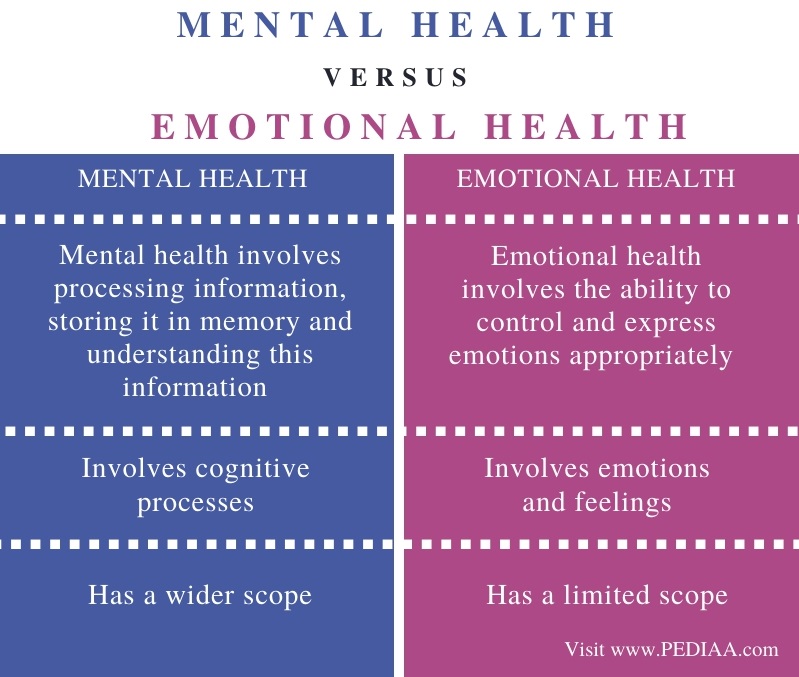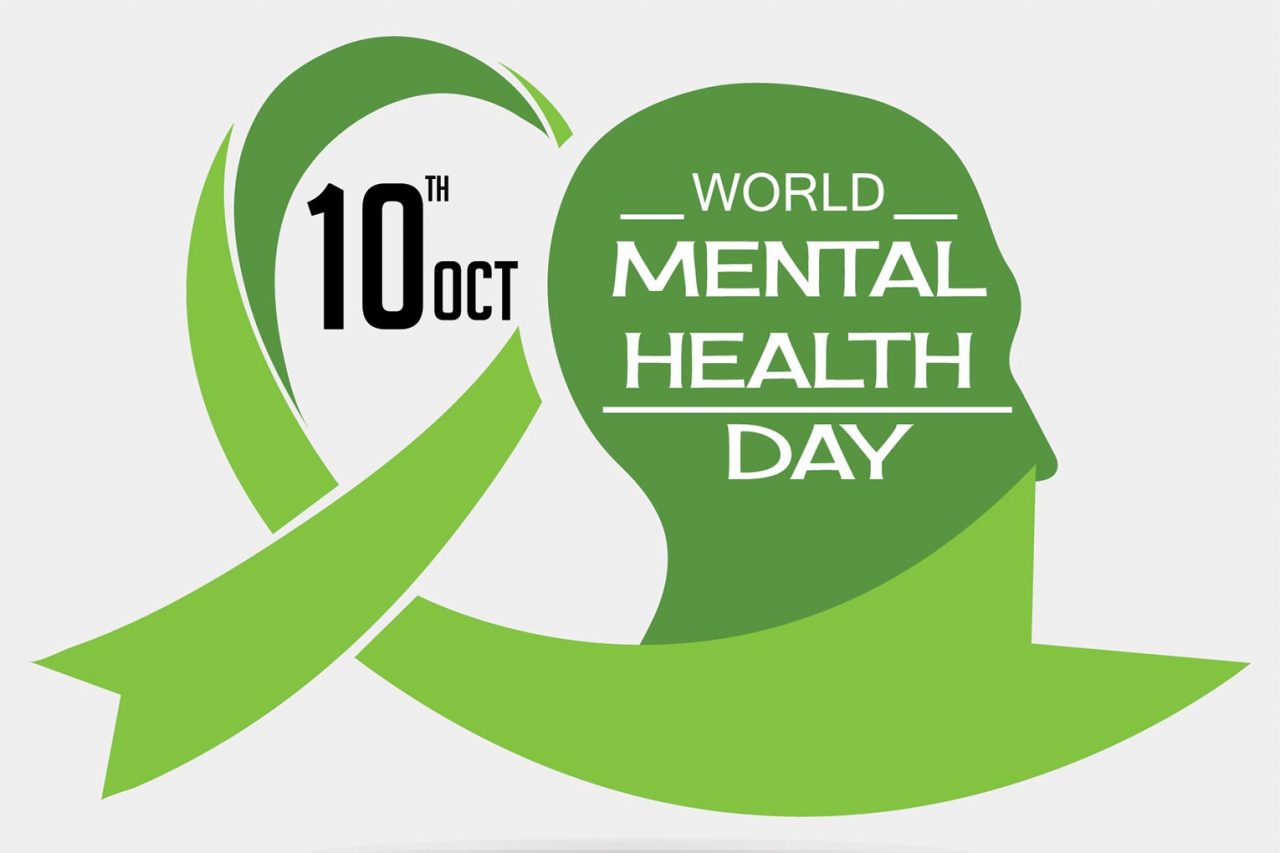The Basic Principles Of How Social Connection Affects Mental Health
7% understood about International Suicide Avoidance Day (18). Proof suggests that aspects that influence preventing or postponing treatment include lack of knowledge about aspects of mental disorder and discrimination (19). Many seek to learn more about mental health problem in the mass media, consisting of motion pictures and social media networks. What they see, of course, shapes the way they think about both psychological health problem in general and private disorders.
Because psychotic breaks, suicide, and aggravating circumstances can be shown in distorted or even comical methods, the intensity of emergency scenarios involving psychological illness might not be acknowledged. Without proper information from household members, even the clients themselves may have trouble recognizing a worsening of their condition, and when they do, they might have difficulty choosing where to try to find aid.
Nevertheless, studies have actually shown that this worry is unfounded, and conversations about suicidal tendencies can even minimize signs (20, 21). The recognition that self-destructive behavior is major and that treatment looking for often requires aid makes it easier for member of the family and other caretakers to bring in patients for first aid before a fatality can take place.
Public research has actually revealed that consuming disorders and alcohol and substance abuse are frequently seen as caused and kept by the patient's own (2224). The belief that drug abuse is because of one's own choices and mindsets can affect the value and adequacy of public alcohol and drug services and treatments (24).
Such views are rarely understood as diseases, such as cancer or heart problem (23). Emergency situation situations, such as serious dependence, withdrawal syndrome, delirium, and induced psychosis may stop working to be properly dealt with due to preconception. In addition, the understanding that patients will be treated adversely can cause them or even family members to prevent seeking treatment.
It threatens to think that mental disorder treatment is inefficient, because it can lead people to overlook emergency scenarios and stop working to seek assistance for them. Another outcome of stigma is social distancing from people with mental health problem. Social distance regarding individuals with mental disorder has been measured in some circumstances (at work, amongst next-door neighbors, and in marriage) (25).
Some Of How Does Inclusion Affect Mental Health
This issue can be even more major when social distancing takes place within the family itself. Lastly, a situation may be a lot more severe: structural discrimination. Where, for example, establishing treatment sites for mental disease in distant areas, much of which are difficult to access, can give the sensation that the issue is not in your area.
As a repercussion, people with mental disorder are a lot more likely to be preyed on. Clients may associate treatment for mental disorder, whether on an outpatient basis, in medical facility wards or in intensive care, with fear, distorted beliefs and even negative memories from previous experience. Regardless of taking their medication routinely, 2550% of clients do not report advantageous modifications (26, 27) or feel that treatment as something coercive (27, 28), which often leads them to discontinue their medication (4070% of patients) (27, 29).
The very first technique includes compassion and spoken persuasion, however when life is at danger, whether the patients' or those around them, they should be purchased in, even if versus their will. Despite whether the signs remain in remission by the end of treatment, the whole procedure may be remembered with sadness, bitterness, and pity.
Nevertheless, even with voluntary admission, clients can be dealt with in a place they repent of or have contact with other clients with similar or worse conditions. Psychotropic medications can also be seen as stigmatizing, and in an emergency environment, patients are required to use them, typically at higher dosages and frequencies than in outpatient treatment.
Physical restraint, which is also connected with emergency psychiatric treatment, gets worse the stigma for patients and subsequently affects adherence to medical treatment ($130, 31). Training the healthcare teams to utilize restraint properly and just as a last hope is vital, although not all groups are prepared for this. Research study has point some problems out that contribute to preconception in health care, either directly or indirectly impacting access to care and care quality for people with psychological diseases (4).
In Brazil, psychiatrists likewise presented unfavorable ideas about individuals with schizophrenia. Negative stereotypes existed along with the belief that tolerance to side effects of psychotropic medications. Currently, being older was related to less bias (32). Lauber et al. (33) discovered that, in personal practice, psychiatrists typically stereotype individuals with psychiatric conditions and that stigmatizing actions were not different from those of the basic population (32).
How Does Isolation Affect Mental Health Fundamentals Explained
Rettenbacher et al. (35) suggested that psychotropics might be a source of preconception, reporting that almost all psychiatrists assessed Alcohol Detox thought about psychopharmacotherapy crucial, but just 71. how does academic competition affect mental illness. 4% of them followed the very same treatment if they are diagnosed with schizophrenia (32). This kind of mindset can worsen emergency situations, bearing in mind that numerous patients require uncontrolled intervention and are provided higher doses and frequencies of medication over a few hours or days.
The nature of contact in healthcare environments, especially the in the emergency situation space and the psychiatric emergency situation system, it makes professionals correspond with individuals who have extreme and chronic symptoms. This could, paradoxically, perpetuate instead of resolve stereotyped beliefs (3). What's more, the connection is normally biased due to the fundamental imbalance of power between healthcare experts and clients, which could mitigate any positive impacts of contact (3, 3638).
In psychiatric emergencies, whether treated on an outpatient basis, in an infirmary, or in emergency situation care systems, the group's experience, combined with their treatment approach, can minimize negative and stigmatizing mindsets and result in better patient assistance. Rossler ($139) reported numerous variables of the work environment that limit care quality and can eventually lead to expert burnout, counting non-supportive environments, unsupported places, restricted means, inadequate centers, and stigma towards the psychological health team.
For instance, nurses reported that bad schedule of resources and infrastructure obstructed security (areas that handle psychiatric emergencies must provide adequate protection for clients and staff), which exacerbates the insecurity of taking care of patients with mental disorder and might postpone or to avoid care (41, 42). On the other hand, professionals who look after individuals with compound usage conditions, who have better support in their services, showed more positive mindsets towards patients (40).

Other reasons for tension consist of a lack of positive feedback, bad pay, and an undesirable work environment. A client's suicide is https://www.liveinternet.ru/users/camruscarc/post476782851/ also an essential variable for many experts, and lots of report signs of post-traumatic tension after an occasion (39). Stigma can likewise affect health specialists, which might intensify public preconception as well as impact postures towards look up treatment.

(43) investigated the way psychiatrists and psychiatry are seen by different groups. Popular Drug Rehab opinion frequently has the idea that psychiatry does not produce results and can even be hazardous, which psychiatrists are low-status doctors who use too lots of psychotropic medications. The media presents psychiatry as a specialty without training, representing psychiatrists as madmen, healers, and even charlatans - how does mental illness affect physical health.
